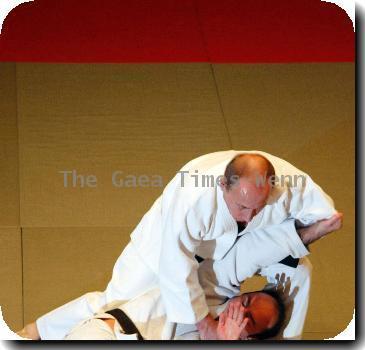2 suicide blasts hit southern Russia, killing 12 people
By Arsen Mollayev, APWednesday, March 31, 2010
Suicide blasts in southern Russia kill 12
MAKHACHKALA, Russia — Two suicide bombers including one impersonating a police officer killed at least 12 people and injured 18 others in the southern Russian province of Dagestan on Wednesday, officials said. Nine police officers were among the dead.
The blasts in the North Caucasus region came two days after a twin suicide bombing tore through the Moscow subway system, killing 39 and wounding scores. Dagestan borders Chechnya, where Russian troops have fought two full-scale wars against separatist rebels in the past 15 years.
In Wednesday’s attacks, a suicide bomber detonated explosives in the town of Kizlyar near Dagestan’s border with Chechnya, when police tried to stop the bomber’s car, Interior Minister Rashid Nurgaliyev said in televised comments.
“Traffic police followed the car and almost caught up — at that time the blast hit,” Nurgaliyev said. He said the deadly cargo was headed for the center of Kizlyar. There was a school and law enforcement building nearby.
As investigators and residents gathered at the scene of the blast, a second bomber wearing a police uniform approached and set off explosives, killing the town’s police chief among others, Nurgaliyev said.
The Moscow subway bombings shocked a country that had grown accustomed to such violence being confined to a restive southern corner such as Dagestan — and marked the return of terrorism to the everyday lives of Muscovites after a six-year break.
The North Caucasus provinces of Dagestan, Chechnya and Ingushetia are prone to more frequent attacks, hosting an active separatist Islamist insurgency that government forces are struggling to contain. Police are the frequent target because they represent federal law enforcers — the separatists’ ideological enemy.
The violence continues despite Kremlin efforts to stem it. President Dmitry Medvedev, who recently said the separatists had spread through the region “like a cancerous tumor,” earlier this year appointed a deputy prime minister to oversee the troubled region.
Rebels from the North Caucasus, which includes Dagestan and Chechnya, were blamed for masterminding the Moscow attack, but no claims of responsibility have been made. Speculation has been rife that the attacks were retaliation for the recent killing of high-profile separatists in the North Caucasus by police. Prime Minister Vladimir Putin vowed late Tuesday to drag the organizers “out of the sewer.”
Monday’s subway bombings, carried out by two women, were the first terrorist attacks in Moscow since 2004. They have shaken a city that has been insulated from the violence still raging in the restive southern corner of the country.
The first blast struck the Lubyanka station in central Moscow, beneath the headquarters of the Federal Security Service or FSB, the KGB’s main successor agency. The FSB is a symbol of power under Putin, a former KGB officer who headed the agency before his election as president in 2000.
About 45 minutes later, a second blast hit the Park Kultury station on the same subway line, which is near the renowned Gorky Park. In both cases, the bombs were detonated as the trains pulled into the stations and the doors were opening.
Associated Press writers David Nowak in Moscow and Sergei Venyavsky in Rostov-on-Don contributed to this report.
Tags: Bombings, Chechnya, Dead, Eastern Europe, Europe, Makhachkala, Moscow, Russia, Terrorism, Vladimir Putin

